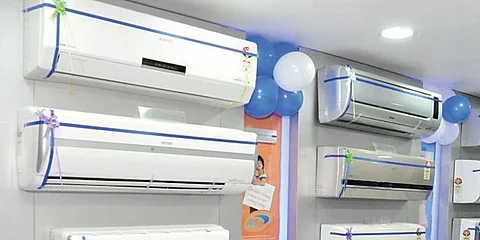

HYDERABAD: People working in air-conditioned offices must be more careful regarding the spread of viral infections through the respiratory droplets, as the droplets tend to survive longer on the surfaces in such conditions. Also, those living in colder or humid areas should take extra care.
Researchers from the Indian Institute of Technology-Hyderabad conducted a study to find out as to how long respiratory droplets survive on the surfaces and what the various parameters are that influence the duration of their survival on surfaces.
Speaking to Express, one of the researchers of the study titled ‘Lifetime of sessile saliva droplets in the context of SARS-CoV-2’, Prof Kirti Chandra Sahu of the Department of Chemical Engineering, said that the respiratory droplets or saliva droplets, stay longer on surfaces in environments where the humidity is high and temperatures are lower. Findings of the study have been published in the journal International Communications in Heat and Mass Transfer.
Apart from temperature and humidity, another important factor is the characteristic of the surface on which the droplets fall. Prof Sahu said, “Droplets will stay longer on less hydrophilic surfaces due to the higher contact angle between the droplets and such a surface.”This in layman terms means that droplets survive longer on surfaces that are less water-friendly. For example, a droplet will survive for three times more duration on the screen of a smartphone, than on a normal glass surface.
How long would a droplet stay on the surface? Prof Sahu said, “A normal size saliva droplet of 10 nanolitres takes more than 15 minutes to evaporate at room temperature and relative humidity of 50 per cent. It might take half-an-hour depending on various factors, mainly humidity and temperature.”
One reason why saliva droplets take longer to evaporate than water is because apart from water, they also contain salts, protein, and in case of infected people, the virus. Prof Sahu along with Prof Saravanan Baluswamy and Prof Sayak Banerjee of the Department of Mechanical and Aeronautical Engineering, in their study showed that these ingredients delay the evaporation of respiratory droplets as compared to pure water droplets, through numerical models.